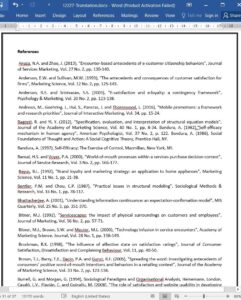Abstract
Purpose The purpose of this paper is to develop and empirically test a model that examines the relationship between post-adoption self-efficacy, satisfaction, and loyalty in the usage of mobile shopping applications.
Design/methodology/approach A structured questionnaire was used to collect data from respondents who had used mobile shopping applications to make purchases. Data analysis was done using partial least square structural equation modelling.
Findings The results show that self-efficacy and satisfaction have a positive impact on continuance intention; however, the same may not lead to advocacy. The results also show that some antecedents of self-efficacy and satisfaction at the post-adoption stage differ from the pre-adoption intention stage.
Practical implications The findings of the study provide a better understanding of the factors likely to influence loyalty among customers using mobile shopping applications. The findings also provide valuable insights into the factors that e-retailers need to focus to build self-efficacy among their customers using mobile interface.
Originality/value The contribution of the paper lies in eliciting the differences between customer choice model at the pre-adoption and post-adoption stage for mobile shopping. Furthermore, the study demonstrated the role of a cognitive factor of self-efficacy in loyalty at the post-adoption stage that is pre-dominantly researched with affective factor of satisfaction.
1. Introduction
The twenty-first century has seen a paradigm shift in the retail industry by rapid diffusion of web-based technologies. Brick and mortar retailers venturing into e-retail followed by the emergence of pure-play e-retailers changed the retailing landscape in the first decade. The second decade is witnessing the emergence of m-shopping as the new avatar of online retailing. Online retailers are increasingly targeting avid users of smartphones to expand their reach effectively by making huge investments in promoting mobile retail. Mobile applications, or “mobile apps”, are transforming the retail world. A mobile app is similar to a virtual store of that retailer. Retailers have been aggressively promoting usage of mobile apps to their customers in recent years. Initial adoption of mobile retailing and similar technologies in various domains has received considerable attention from researchers across the world (Bitner et al., 2000; Curran and Meuter, 2005). In case of mobile apps, beyond the initial trials, which were led by cash backs, trial coupons, mobile-only offers, there is a need to understand customer experiences acting as enablers and deterrents in continuance usage of mobile apps. The post-adoption customer behaviour towards mobile apps for shopping remains largely unexamined in the academic literature (Taylor and Levin, 2014). With the increasing focus on customer loyalty, it is important to understand the enablers and challenges in fostering loyalty in using mobile apps among customers.










